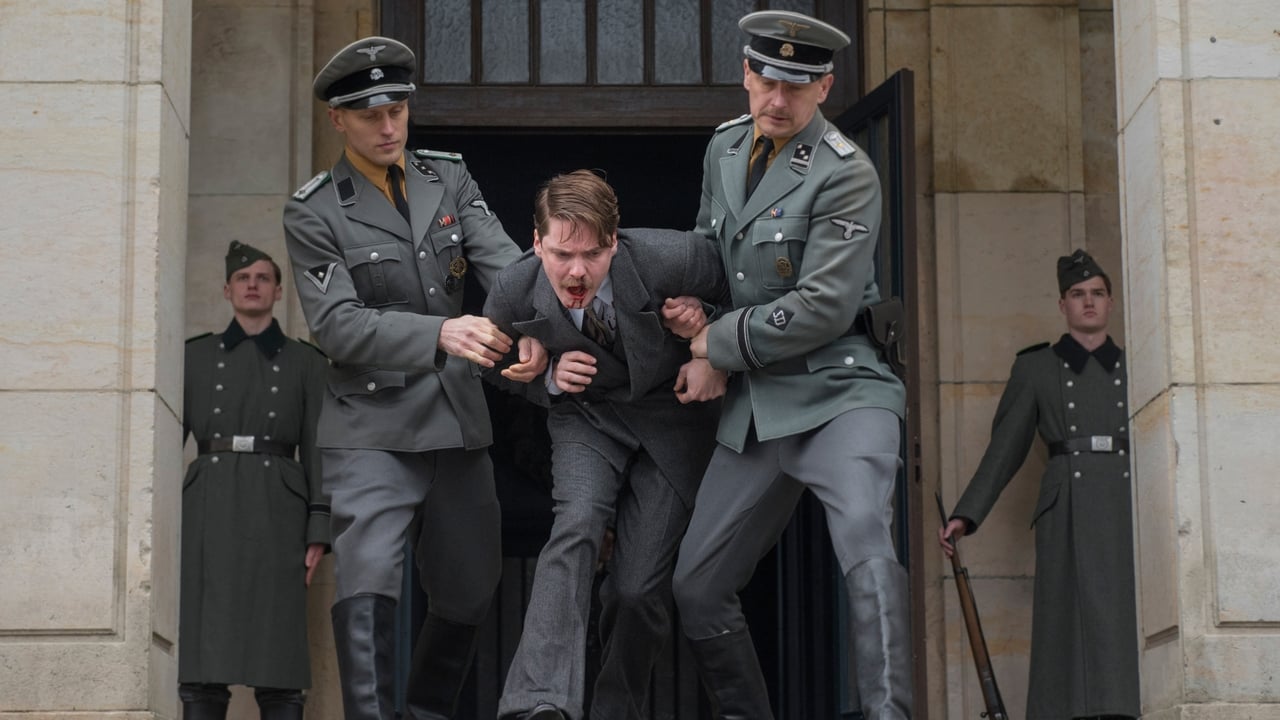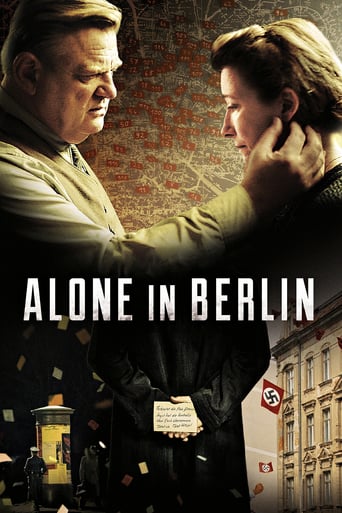

What a fantastic examination of contrasts! The scope of the actions of our protagonists is minuscule compared to the danger they face if/when caught. The quite indignation and passion of our bereaved parents is palpably examined in their mundane circumstances and amplified a thousand times by the fine pacing, acting and -especially- the use of sparse but pointed dialog. Absolutely excellent casting, especially Gleason. I can not think of any film which so brutally and undramatically depicts the life of ordinary German citizens living under the Nazi regime, a truly poignant depiction of ordinary emotion existing in a sea of madness. ALONE IN BERLIN is not to be missed!
... View MoreI read the book just before I found out they were making the film so was naturally quite excited to see how they handled it.While Gleeson and Thompson turn in great performances, the adaptation lets them down badly.The film and book part company towards the end: the film ends up with a glimmer of hope, with the postcards being thrown out of the window, possibly to give their message again. In the book there is no false hope. Nobody reads the postcards, nobody is affected, the protest is a vain one.But the message is that even if doomed to fail, we must still protest if something is not right. If we do not oppose evil, we tacitly condone it. I realise that as reviews go, this is uninformative and a bit rubbish; I feel that it's important to look beyond the film amd to reflect on the book's message, which is as relevant today as it was during WW2.
... View MoreFirst of all, if I would have been in the shoes of Otto Hampel, the one who inspired the character of Otto Quangel, I would not have exposed myself by buying cards in shops, I would have written those messages on plain paper or pieces of cardboard. Which I would have left in more populated places, such as tram stops, train stations, big shops, restaurants, etc. very crowded public places. It would have been even easier and less dangerous and with much greater effect. Or I would be writing at night with paint on the walls of the city Berlin. Interesting story, well done film, worthy of appreciation the acting of all actors, especially the protagonists, Emma Thompson and Brendan Gleeson.
... View MoreAtmospheric, understated, shot mainly in B&W, convincing sotto voce performances from two superb actors/actresses - Emma Thompson and Brendan Gleeson - plus the less-known but still excellent Daniel Brühl, a Spaniard who plays an extremely convincing German, probably because he was largely brought up in Germany.Based on a true story from a novel (so it seems), it moves, movingly, to its final conclusion. There are few moments of definite dramatic tension and once the scene has been set, the plot plays out to its inevitable conclusion so, I guess, there was no real need.Why they changed the original title from Letter from Berlin is something only the producers/director know but the original makes far ore sense than Alone in Berlin.It's interesting to see that movies about 'the war' are still being made and it's absolutely essential that current and up-coming generations do not forget the madness and sheer inhumanity of it all, the acceptance of and the arrogance of the status quo at that time. We really need desperately reminding of that because, as we know, history repeats itself and the ignorant are out with their blinkers.If you want to take something away from this movie, take the knowledge that even small actions can have a ripple effect, that one person can make a difference and that without sustained opposition and resistance, evil will spread. It will, it does, we know this from history and current events, yet it's something we all ignore! It seems to be the way humans are wired. But don't let society wire you that way. Watch the movie and be inspired by selfless acts of bravery.
... View More